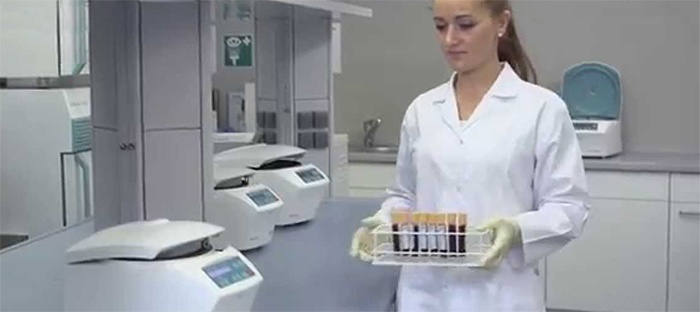
A centrifuge is an integral component of a laboratory and plays an important role in the separation of fluids, gas or liquid for analysis. Many scientists and laboratorians depend on centrifuges for a host of different applications. However, choosing the correct centrifuge can be a complicated process.
There are many types of centrifuges, and they are available in a wide range of sizes, capacities, and capabilities. From mini-centrifuges, to large floor standing models, to ultra-centrifuges that spin up to 100,000 RPM, how do you know which centrifuge is right for your application?
To help in your selection process, here are 5 Questions to ask before making a purchase:
1. Do your samples need to be refrigerated?
If your samples require precise temperature control, a refrigerated centrifuge is required. A refrigerated centrifuge includes a cooling system that lowers and maintains a pre-set temperature throughout the spinning cycle.
In a non-refrigerated centrifuge, the temperature of the samples will increase several degrees when spinning. If precise temperature control is not required, then a non-refrigerated centrifuge offers a lower cost option.
2. What are your speed requirements?
It is important to know the maximum relative centrifugal forces (RCFs) required for each type of sample, and what type of rotor is required. As speed increases, denser matter moves further away from the rotational axis and lighter material moves closer. You will need to know the speed required for your application so that it can be compared to the maximum speed of the centrifuge.
Additionally, you will need to utilize rotors appropriate to the speed range. Rotors hold samples during centrifugation and are available in both fixed-angles and with swinging buckets. In a fixed angle rotor, sample tubes are held at a constant angle, usually 45°. Fixed angle rotors can spin 3-4 times faster than a swinging bucket and are good for high speed/lower capacity applications. Swinging bucket rotors contain buckets which hold the sample tubes. The buckets will spin at an angle close to perpendicular to the axis due to the centripetal force as the rotor increases speed. Swinging bucket rotors are best for low speed/high capacity applications.
3. What size tubes are you spinning?
Capacity is an important consideration because there are a fixed number of tubes a centrifuge can hold. You should know the maximum, typical, and minimum amount of tubes that will be spun and the tube sizes. Also consider that angular (fixed angle) rotors can only spin specific size tubes. Swinging bucket rotors include inserts that hold the sample tubes and may accommodate different size tubes. Swinging bucket rotors can also hold more tubes per spin cycle.
4. Do your samples require biocontainment?
If your samples require biocontainment, choose a centrifuge that offers certified biocontainment lids to reduce the risk of laboratory acquired infections in the event of a bottle failure or tube leakage. Biocontainment lids come in a variety of designs including screw caps with bio-safety seals. These bio safety lids will contain all liquids within the bucket/lid set, preventing droplets or aerosols from escaping.
5. Do you have size limitations for your centrifuge?
Take into consideration where the centrifuge will be placed. It is important to know the dimensions and footprint of the centrifuge to understand if it will fit on your benchtop or within the floor space allotted. A refrigerated centrifuge will also be larger than its non-refrigerated counterpart to accommodate the cooling system. Some large benchtop centrifuges have optional stands to free up your bench space.
Today, centrifuges are equipped with intelligent technologies and innovation focused on increased safety, longevity, and usability. By understanding what criteria are needed to ensure optimal performance, you will be able to choose the right centrifuge and rotors for your laboratory.
Helmer Scientific offers a full line of clinical centrifuges from Hettich. Known for their reliable functionality and ease of use, Hettich centrifuges feature the most modern technology and provide high-quality precision for centrifugation. Hettich centrifuges and accessories were developed in collaboration with users from many disciplines, and they are always adapted to the latest requirements.
For your convenience, we have created a simple checklist to help with your centrifuge purchase. Download the checklist below.




